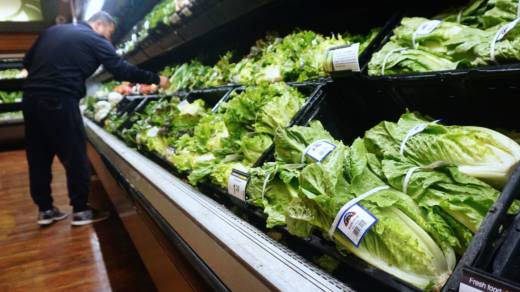This original article from the Associated Press was published Nov. 22:
U.S. health officials on Friday told people to avoid romaine lettuce grown in Salinas because of another food poisoning outbreak.
The warning comes almost exactly one year after a similar outbreak led to a blanket warning about tainted romaine.
The officials urged people not to eat the leafy green if the label doesn’t say where it was grown. They also urged supermarkets and restaurants not to serve or sell the lettuce, unless they’re sure it’s grown elsewhere.
Officials say the warning applies to all types of romaine from the Salinas region, include whole heads, hearts of romaine and pre-cut salad mixes that have romaine.
The U.S. Food and Drug Administration is investigating an E. coli outbreak that has sickened 40 people in more than a dozen states. The agency said its inquiry led investigators to farms in Salinas and that they were looking for the contamination source.
Romaine has been tied to repeated food poisoning outbreaks, including the one right before Thanksgiving last year. It’s not clear exactly why romaine keeps sickening people, but food safety experts note the difficulty of eliminating risk for produce grown in open fields and eaten raw.
“It’s very, very disturbing. Very frustrating all around,” said Trevor Suslow of the Produce Marketing Association.
